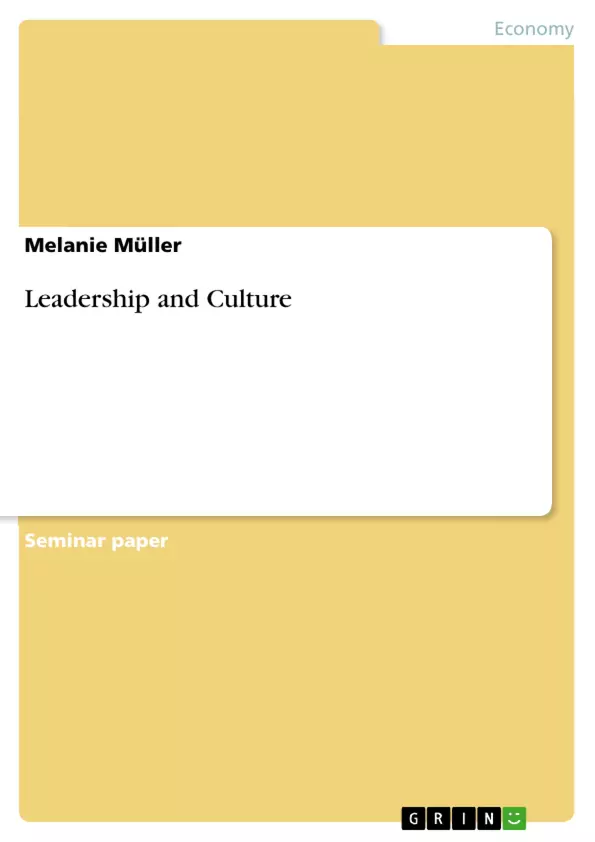For all of us, it was the first time in India and we were excited looking forward to see this huge and different country. All of us had various expectations and we were very enthusiastic to join the exchange program. The program starts at 8th February and ends at 19th February 2011. We visited Delhi, Agra and Jaipur, and then we went back to Delhi Airport. We also went to Goa on our own for one weak, this was organized by us. Every day, we had a program, like visiting two universities, Indian companies or doing sight seeing. During our journey we got new impressions and saw a lot of differences to Germany. The Indian culture has many differences to the German culture which made us going through the DMI Stages.
Inhaltsverzeichnis (Table of Contents)
- Assignment about an own experience
- Introduction
- DMI Stages in India
- Denial
- Defense
- Minimization
- Acceptance
- Adaptation
- Integration
- Conclusion
- Assignment about a film "Dances with wolves"
- Introduction
- DMI Stages
- Denial
- Defense
- Minimization
- Acceptance
- Adaptation
- Integration
- Conclusion
- Doing Business with China
- Introduction
- Comparison China and Germany
- Differences in general
- Negotiating in China
- Conclusion
Zielsetzung und Themenschwerpunkte (Objectives and Key Themes)
This assignment focuses on exploring the concept of intercultural sensitivity through the lens of the Developmental Model of Intercultural Sensitivity (DMI). It examines personal experiences and observations in different cultural contexts, utilizing the DMI framework to analyze and understand intercultural interactions.
- The Developmental Model of Intercultural Sensitivity (DMI) and its six stages of development.
- Cultural differences and their impact on intercultural interactions.
- Analyzing and understanding the stages of ethnocentrism and ethnorelativism.
- Applying the DMI framework to real-world experiences in India and China.
- Exploring cultural differences in business contexts, particularly between Germany and China.
Zusammenfassung der Kapitel (Chapter Summaries)
The first chapter focuses on the author's personal experience in India, using the DMI model to analyze their own intercultural journey. It delves into the six stages of the DMI, from denial to integration, examining the author's evolving perceptions and understanding of Indian culture.
The second chapter examines the film "Dances with Wolves," analyzing the protagonist's journey through the DMI stages as he encounters Native American culture. It explores how the film portrays the process of cultural adaptation, acceptance, and integration.
The third chapter explores the challenges and opportunities of doing business with China, highlighting the cultural differences between China and Germany. It delves into the importance of cultural sensitivity in business negotiations and discusses key aspects to consider when navigating these differences.
Schlüsselwörter (Keywords)
The main keywords and focus topics of this work include the Developmental Model of Intercultural Sensitivity (DMI), ethnocentrism, ethnorelativism, cultural differences, intercultural sensitivity, cultural adaptation, India, China, and business negotiations.
Frequently Asked Questions
What is the Developmental Model of Intercultural Sensitivity (DMI)?
The DMI model (by Milton Bennett) describes how people experience and engage with cultural differences, moving from ethnocentric stages to ethnorelative stages.
What are the six stages of the DMI model?
The stages are Denial, Defense, Minimization (ethnocentric), and Acceptance, Adaptation, and Integration (ethnorelative).
How did the author experience the DMI stages in India?
The author describes their journey through the stages while encountering the vast cultural differences in Delhi, Agra, and Jaipur during an exchange program.
What are the main cultural differences in business between Germany and China?
The assignment highlights differences in negotiation styles, communication (direct vs. indirect), and the importance of hierarchy and relationship-building (Guanxi) in China.
How is the film "Dances with Wolves" used to explain the DMI model?
The film serves as a case study to show how the protagonist moves from a defensive stance toward Native American culture to full integration and adaptation.
Why is intercultural sensitivity important for leadership?
Leaders in global environments must understand cultural nuances to manage diverse teams effectively, avoid misunderstandings, and build successful international partnerships.
- Quote paper
- Melanie Müller (Author), 2011, Leadership and Culture, Munich, GRIN Verlag, https://www.grin.com/document/189181



